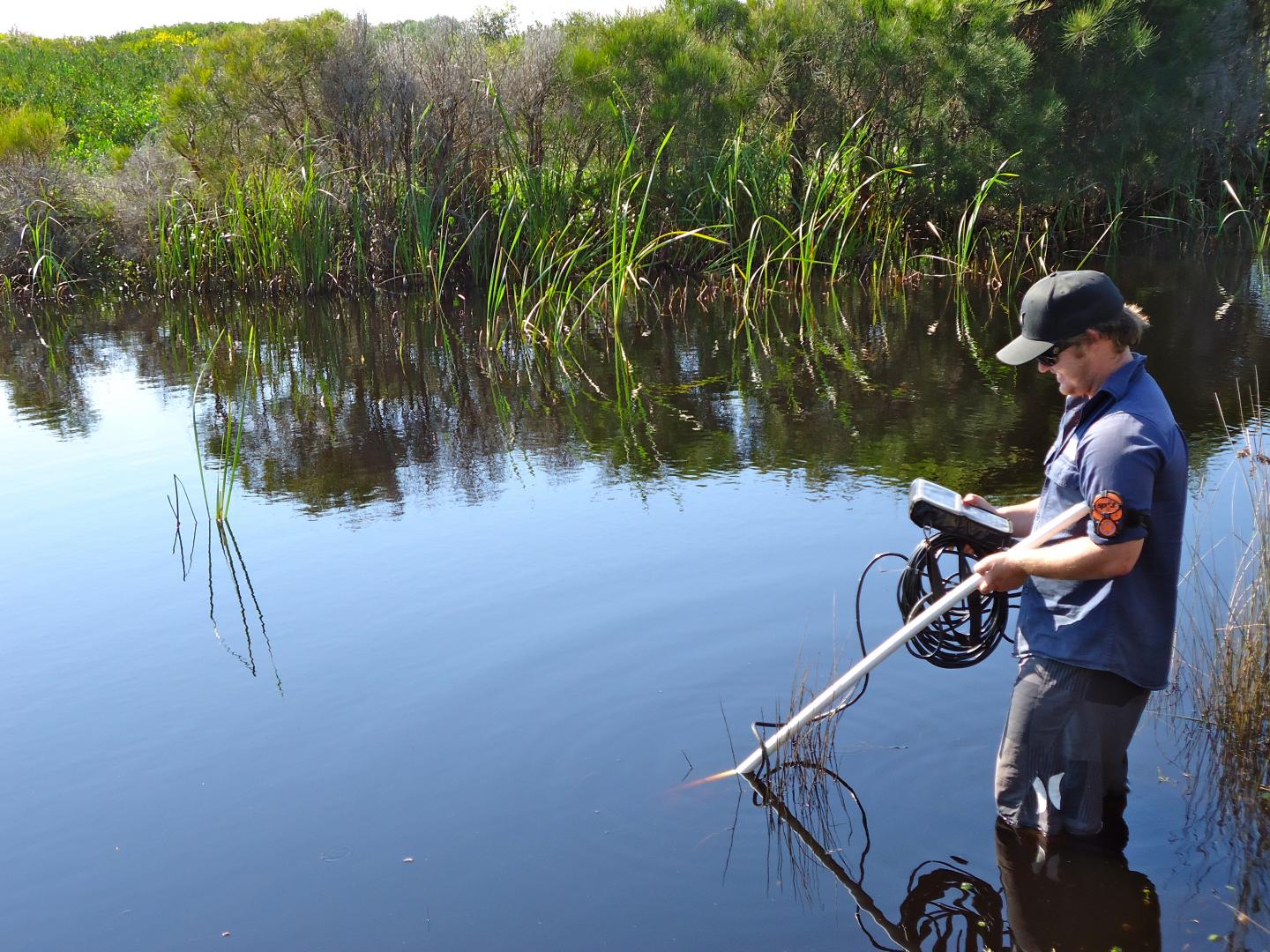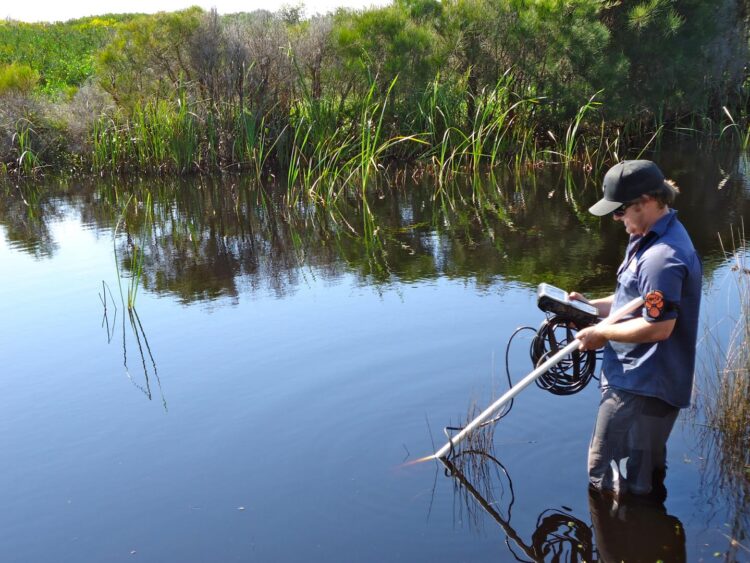Study of 166 rivers, lakes and lagoons in Australia shows fisheries face big challenges

Credit: NSW DPIE
Estuaries on the south-east coast of Australia are warming at twice the rate of oceans and the atmosphere, a new study has found.
Researchers say the apparent accelerated impact from climate change on estuaries could adversely affect economic activity and ecological biodiversity in rivers and lakes worldwide.
Dr Elliot Scanes from the University of Sydney said: “Our research shows that estuaries are particularly vulnerable to a warming environment. This is a concern not only for the marine and bird life that rely on them but the millions of people who depend on rivers, lakes and lagoons for their livelihoods around the world.”
The researchers say that changes in estuarine temperature, acidity and salinity are likely to reduce the global profitability of aquaculture and wild fisheries. Global aquaculture is worth $US243.5 billion a year and wild fisheries, much of which occurs in estuaries, is worth $US152 billion. More than 55 million people globally rely on these industries for income.
Professor Pauline Ross, who leads the research group in the School of Life and Environmental Sciences, said: “Estuaries provide services of immense ecological and economic value. The rates of change observed in this study may also jeopardise the viability of coastal vegetation such as mangroves and saltmarsh in the coming decades and reduce their capacity to mitigate storm damage and sea-level rise.”
The results are based on 12 years of recording temperatures in 166 estuaries along the entire 1100-kilometre stretch of the New South Wales coast in south-eastern Australia. In that time more than 6200 temperature observations were taken.
The data, which are publicly available, were taken by field officers of the NSW Department of Planning, Industry and the Environment and used in a marine research collaboration with the University of Sydney.
On average, the estuary systems experienced a 2.16-degree temperature increase, about 0.2 degrees each year.
Dr Elliot Scanes said: “This is evidence that climate change has arrived in Australia; it is not a projection based on modelling, but empirical data from more than a decade of investigation.”
Studies on specific lake and river systems have found evidence of warming, such as along the North Sea, in Germany, in the Hudson River in New York and Chesapeake Bay, Maryland. This is the world’s first long-term study that has considered a diverse range of estuary types on such a large scale.
It is published today in Nature Communications.
“This increase in temperature is an order of magnitude faster than predicted by global ocean and atmospheric models,” Dr Elliot Scanes said.
According to the Australian Bureau of Meteorology, air and sea temperatures in Australia have increased by about 1 degree since 1910. And over the past decade, air temperatures have increase 1.5 degrees as compared to the 1961 to 1990 average.
“Our results highlight that air or ocean temperatures alone cannot be relied upon to estimate climate change in estuaries; rather, individual traits of any estuary need to be considered in the context of regional climate trends,” Dr Elliot Scanes said.
“New models will need to be developed to help predict estuarine changes.”
The study also found that acidification of estuaries was increasing by 0.09 pH units a year. There was also changes to the salinity of estuary systems: creeks and lagoons became less saline while river salinity increased.
Temperature increases in estuaries were also dependent on the type, or morphology of the system, the study found.
Professor Ross said: “Lagoons and rivers increased in temperature faster than creeks and lakes because they are shallower with more limited ocean exchange.”
She said that this suggests industries and communities that rely on shallow estuaries for culture, income and food could be particularly vulnerable during global warming.
“This is of concern in other dry temperate zones like the Mediterranean and South Africa where many of the estuaries are similar to those studied here,” she said.
The study suggests that estuaries that remain open may also soon begin to “tropicalise”, and estuarine ecosystems could become colonised by tropical marine species and reflect a warmer environment.
Professor Ross said: “This research will help local fisheries and aquaculture to develop mitigation strategies as the climate changes.”
DOWNLOAD research and photos of estuary collection points and Dr Elliot Scanes at this link.
INTERVIEWS
Dr Elliot Scanes
School of Life and Environmental Sciences, The University of Sydney
[email protected]
Professor Pauline Ross
School of Life and Environmental Sciences, The University of Sydney
[email protected]
MEDIA ENQUIRIES
Marcus Strom | [email protected] | +61 423 982 485
DECLARATION
The data collection for this study was funded by NSW Department Planning, Industry and the Environment.
Two of the research authors, Elliot Scanes and Peter Scanes, are related.
###
Media Contact
Marcus Strom
[email protected]
Related Journal Article
http://dx.





